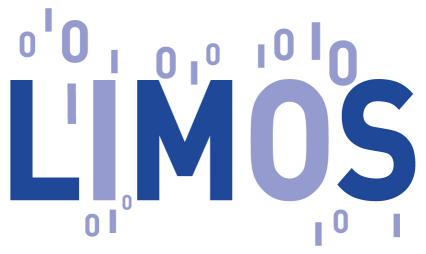Poste : CDD
Date : 30 septembre 2020
Contact Mail : pascal.Lafourcade@uca.fr , tel : 04 73 40 71 17
Postdoc : Constraint Programming for Cryptanalysis of Symmetric Encryption Schemes
https://decrypt.limos.fr/post/postdoc-offer-limos/
- Location: LIMOS, Clermont-Ferrand, France
- Salary: 2000€
- Duration: 1 year
- Keywords: Cryptanalysis symmetric, constraint programming, SAT solving, ILP.
- Starting date: As soon as possible, when we have a good candidate; if possible before October 2020.
Your Profile
- A PhD in Computer Science, Applied Mathematics, Cryptography or related field.
- Competitive research record in symmetric cryptography or in constraint programming.
- Commitment, team working and a critical mind.
- Good written and verbal communication skills in English are essential.
Application
Send by email at pascal.Lafourcade@uca.fr your cover letter, your CV, your PhD, reports of the reviewers of your PhD, a selection of your best papers related to the post-doc offer, some recommendation letters, contact information for 3 referees and any information that might help us to choose you.
Context
This post-doc is founded by the ANR project Decrypt started in January 2019. This project involves Université de Lorraine/LORIA, Université Rennes 1/IRISA, ARMINES/TASC (IMT-Atlantique/Universite Nantes) and Université de Lyon (INSA de Lyon /Universite Lyon 1)/LIRIS. It is composed by top French researchers in cryptanalysis or contraint programming.
Symmetric cryptography is a cornerstone of everyday digital security. Contrary to public key cryptography, the two parties must share a common key to communicate. The most common primitives in symmetric cryptography are stream ciphers, block ciphers that guarantee confidentiality of communications and hash functions for integrity. Thus, for securing our everyday life communication, it is necessary to be convinced by the security level provided by all such symmetric primitives.
During the last five years, many research results have tried to attack those primitives using automatic tools such as Integer Linear Programming (ILP) or Boolean satisfiability (SAT) solvers. However, transforming a theoretical cryptanalysis into a SAT problem or into a set of linear constraints could be a hard and time-consuming task. Our aim is to use constraint programming (CP) to simplify the way the symmetric key attacks are modeled and thus to overpass existing cryptanalytic results. Preliminary studies are really encouraging.
Goal
The goal is to study the capabilities of CP, SAT and ILP solvers to solve cryptanalytic problems. A cryptanalytic problem contains two components. The first component is the symmetric key scheme itself, like for instance AES. The second component is the kind of attacks that is considered such as, for example, cube attacks, conditional cube attacks with division property, (related-key) differential and linear cryptanalysis against block cipher schemes, word-based division property / integral distinguisher. The main goal is to identify schemes and attacks for which it is possible to use off-the-shelf CP, SAT or ILP approaches. To achieve this goal, the work will be divided into the following tasks.
- Study symmetric encryption schemes and identify for several schemes the different components that are used in the scheme design.
- Design CP, SAT, and ILP models for cryptanalytic problems on selected schemes. We will mainly focus on the following attacks: cube attacks, conditional cube attacks with division property, (related-key) differential and linear cryptanalysis, word-based division property / integral distinguisher.
- Experimentally evaluate CP, SAT, and ILP solvers on the models designed in previous tasks, and compare these solvers with existing dedicated cryptanalysis approaches. Design of a tool to automate this task is one of the goals of the project.
DECRYPT
